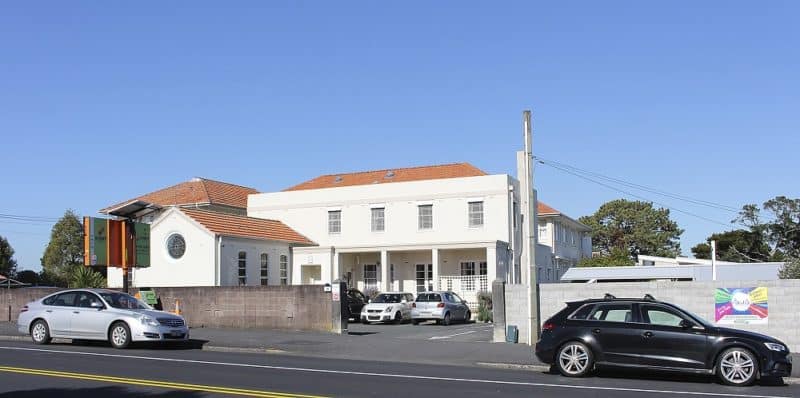Catholic emergency housing providers in Auckland are struggling to cope with increased demand for shelter as the pandemic continues to wreak havoc on employment.
Monte Cecilia Housing Trust chief executive officer Bernie Smith told NZ Catholic that some people are having to face reduced hours of employment, or are losing their jobs as a result of the first lockdown.
“In the month to two months after the first lockdown, we were having 20-30 inquiries per day for housing. And in the last month to six weeks, it’s dropped back to ten to 15 inquiries a day,” Mr Smith said. “But if we look back 12 months, we were getting ten to 15 inquiries a week.”
De Paul House manager Jan Rutledge said they were getting more inquiries in the second level 3 lockdown last month than they did in March.
“We are up to 26 inquiries and we have a wait–list of 55 families waiting for a place with us. Some of those pre-dated this particular resurgence,” said Ms Rutledge.
Both said the increase in demand is not surprising, given that the housing crisis predates the pandemic.
Figures released by the Ministry of Social Development showed the number of applicants on the Housing Register was 18,520 as of June 30, an increase of 50.4 per cent as against the same time last year.
Mr Smith said that, after the first lockdown, the trust has assessed 200 families, with another 100 families waiting to be allocated a social worker so that they can be assessed.
“So that is two to three hundred families waiting on a housing solution, [for] long–term, safe, secure, warm and sustainable housing. That’s not counting 150 families we already have in our transitional housing properties. That’s just for Monte Cecilia,” he said.
New cohort
Ms Rutledge said De Paul House is seeing a new set of clients, based on what they are seeing of the people who are seeking their help.
“We’re probably yet to see the worst of it. Our clients are still beneficiaries–based. But I think we’re going to get a new cohort,” she said. “We have provided food parcels to a slightly new client base, but they haven’t yet come to emergency housing.”
“I think we haven’t seen the worst of it. Once the (wage) subsidy does cease, we are going to see a new client base potentially.”
Mr Smith said they are waiting with “bated breath” as to what will happen with the wage subsidy.
“For some businesses, the second lockdown would mean they’ll have to close up shop, which means more people will lose their jobs,” he said.
“We know [the wage subsidy] has been extended, but we haven’t fully seen yet what the Covid impact would be upon our families, particularly those that are living on a day–to–day basis,” he said.
More houses needed
Mr Smith said they project a need for 600 houses in the next 12 months.
“We’re not growing because we want to grow. We’re growing because of the need. When you get mothers and fathers with little children coming to you, your heart just cries for them,” he said.
He said that, from July 2019 to June 2020, they had 1100 families seeking their support.
“The children connected to those families were 2600. Over 50 per cent of them were 7 years and under,” he said.
“There’s a huge cohort of children that has been traumatised through homelessness, disconnected from school, from social connections, often from their church, because they are transients and trying to have roofs over their heads.”
At the moment, Monte Cecilia Housing Trust has properties from Ranui in West Auckland to Pukekohe in South Auckland, and everywhere in between. The trust is looking at the possibility of building houses for affordable rentals, so that their clients can be housed on a long-term basis.
Mr Smith said Catholics who have invested in rentals can also support them by leasing the property to the trust.
“We would fully manage them, pay the market rent, and that would assist more families to be housed. We take full responsibility, with rents paid 52 weeks of the year,” he said.
Parish support
Both service providers said they are grateful for the support they are getting from parishes.
Ms Rutledge said that, at level 3, they were limited to receiving only food and linen donations to cut face-to-face contact.
“We’re finding that, in keeping people safe and at home, you have to supply them with food. [Getting food is] particularly challenging if you have young children and you’re a solo parent,” she said.
However, at level 2, they will be reaching out for furniture, as they are short of beds.
Mr Smith said they really appreciate the support from parishes.
“It’s easy to be glass–half–empty. We certainly wouldn’t be where we are today without the support of the many parishes of Auckland [in terms of] volunteers, donations of groceries, financial donations, furnishing donations,” he said.

Reader Interactions